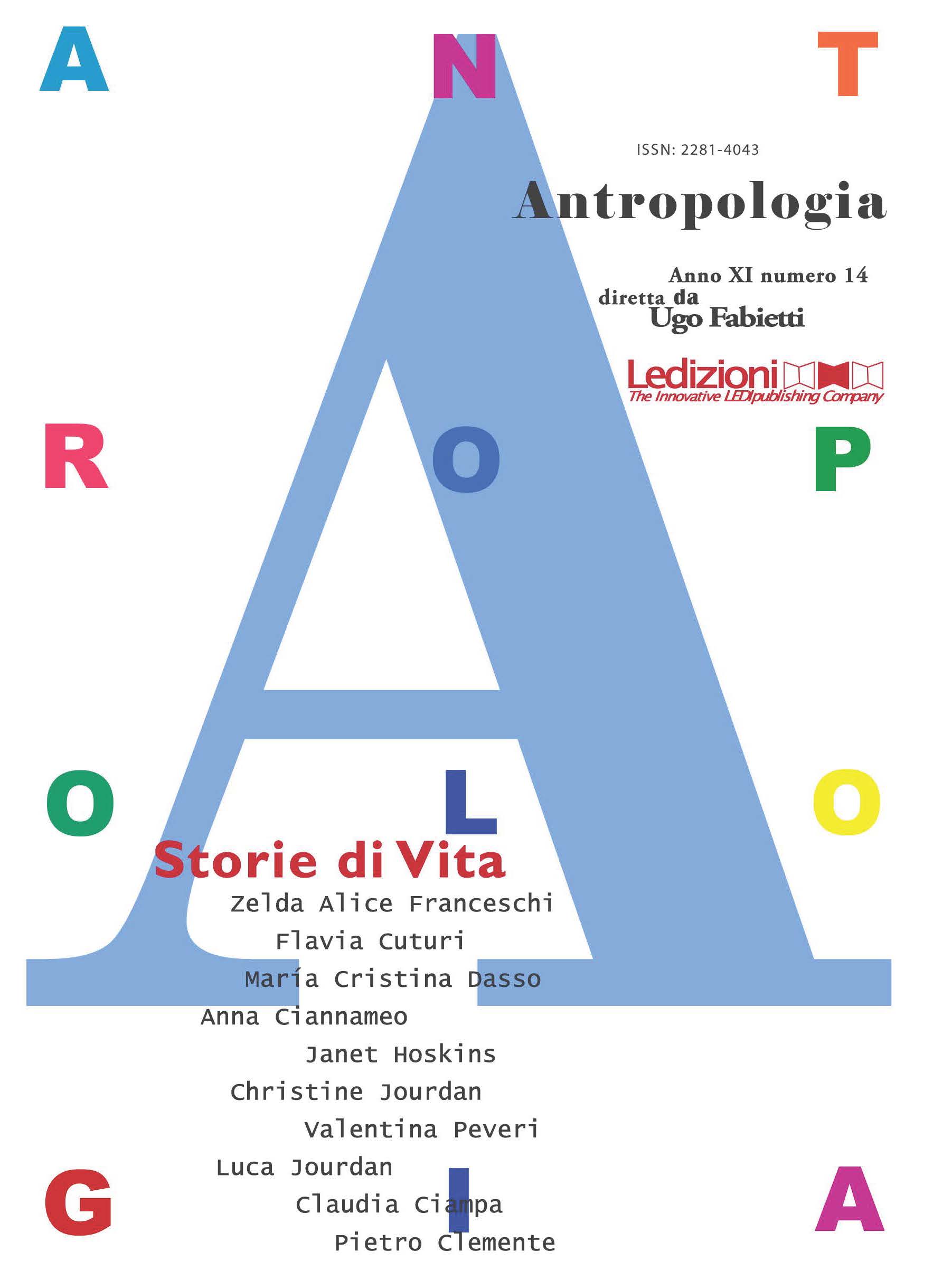Raccontami la mia storia
DOI:
https://doi.org/10.14672/ada2012180%25pParole chiave:
Storie di vita, Restituzione etnografica, Scrittura etnografica, Polifonia, GuatemalaAbstract
A partire da un’esperienza di ricerca condotta nell’area nord-occidentale del Quichè in Guatemala, l’articolo dialoga con i dibattiti disciplinari sullo statuto dell’etnografia in relazione al rapporto con i nativi nella fase di “restituzione”, nativi che diventano lettori critici e fruitori del testo etnografico. L'autrice discute l'importanza di una responsabilità etica e professionale nel raccontare le storie che raccoglie, utilizzando esempi di ricerca collaborativa e co-produzione della conoscenza. L'articolo esamina anche i rischi e le opportunità di stabilire versioni canoniche della storia locale attraverso la presentazione di narrazioni native e documentazione d'archivio. In conclusione, l'autrice invita a sperimentare nuove strategie per riportare la polifonia delle esperienze etnografiche nella scrittura antropologica.
##submission.downloads##
Pubblicato
Fascicolo
Sezione
Licenza

TQuesto lavoro è fornito con la licenza Creative Commons Attribuzione 4.0 Internazionale.
- Gli autori mantengono i diritti sulla loro opera e cedono alla rivista il diritto di prima pubblicazione dell'opera, licenziata sotto una Licenza Creative Commons - Attribuzione che permette ad altri di condividere l'opera indicando la paternità intellettuale e la prima pubblicazione su questa rivista.
- Gli autori possono aderire ad altri accordi di licenza non esclusiva per la distribuzione della versione dell'opera pubblicata (es. depositarla in un archivio istituzionale o pubblicarla in una monografia), a patto di indicare che la prima pubblicazione è avvenuta su questa rivista.




